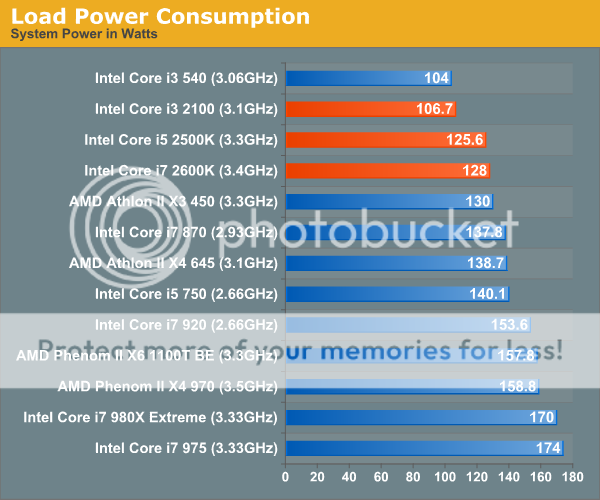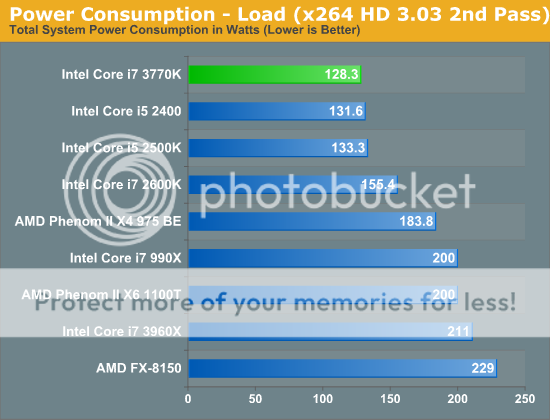http://www.anandtech.com/show/5626/ivy-bridge-preview-core-i7-3770k
Looks to be what most expected, 5-15% increase in performance with an improvement in power consumption when under load. All in all a nice upgrade for those without Sandy Bridge, not so sure I would upgrade if I did have SB though.
AStaley.
Looks to be what most expected, 5-15% increase in performance with an improvement in power consumption when under load. All in all a nice upgrade for those without Sandy Bridge, not so sure I would upgrade if I did have SB though.
AStaley.








 . Was a nice lunch time read but it should have been compared to 2700k not a 2600k as the top 1155 socket CPU. The 2700k uses a little more power than a 2600k and is a bit faster at stock than a 2600k too. The real gains for performance for Ivy vs a 2700k would be a touch smaller on performance but ivy will be better on power use and will show better power gains than a 2600k. Does not really matter too much a 2700k (3.5GHz) is a 2600k(3.4GHz) with a 100MHz speed advantage.
. Was a nice lunch time read but it should have been compared to 2700k not a 2600k as the top 1155 socket CPU. The 2700k uses a little more power than a 2600k and is a bit faster at stock than a 2600k too. The real gains for performance for Ivy vs a 2700k would be a touch smaller on performance but ivy will be better on power use and will show better power gains than a 2600k. Does not really matter too much a 2700k (3.5GHz) is a 2600k(3.4GHz) with a 100MHz speed advantage.